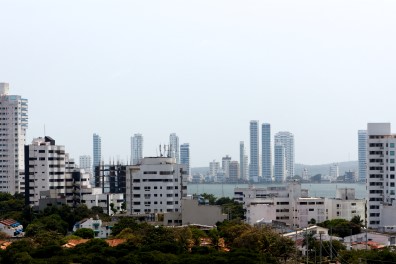This training programme aims at supporting national governments in the development of future legislative frameworks in order to ultimately facilitate good water governance in Latin America, improve resilience to climate variability and contribute to water security and sustainable development. It also promotes national, regional and inter-regional cooperation through knowledge exchange.
The programme is developed by GWP South America in close coordination with GWP Central America and LAWETnet/CapNet. It has the academic support of the University of Dundee (Scotland), Universidad Externado de Colombia, Pontificia Universidad Católica del Perú and Universidad Gabriela Mistral (Chile). The International Union for Conservation of Nature (IUCN) also contributed to this initiative.
In 2014 the main outputs of the programme will be two training workshops, a manual to support training processes, and a monitoring report which will identify knowledge gaps, capacity needs, lessons learned, and follow-up needs.
The first five-day-training workshop took place in Bogota, between 3-7 March, at the Universidad Externado de Colombia. It was tailored to professionals involved in the management of international watercourses in Latin America, mainly officials who have the capacity to influence decision-making on this matter in their home countries. A total of 22 participants attended this first workshop.
International Content
During the workshop, the importance of international waters and watersheds as management units in the regional context were discussed, as well as the management of international waterways and the effects of climate change. An overview of the evolution of international waters law was provided and the principles, treaties, and conventions in this matter were analysed. Formal and informal institutional mechanisms to help address the challenges related to international water governance in the region were presented and illustrated by case studies. Tools for action and cooperation between the parties were also provided. The workshop had both a theoretical and a practical component.
Representatives from the Ministry of Foreign Affairs of Paraguay have asked GWP and Universidad Externado de Colombia to hold a similar workshop for the Academy of Diplomats. The National Water Agency of Peru, given the number of officials interested in this theme, has also requested support to replicate the workshop in cooperation with the Amazon Cooperation Treaty Organisation. Likewise, support has been requested to hold a workshop in Central America to improve dialogue around the Lempa river basin, which is shared by Honduras, Guatemala and El Salvador.
Photo: Cartegna de Indias, Colombia

